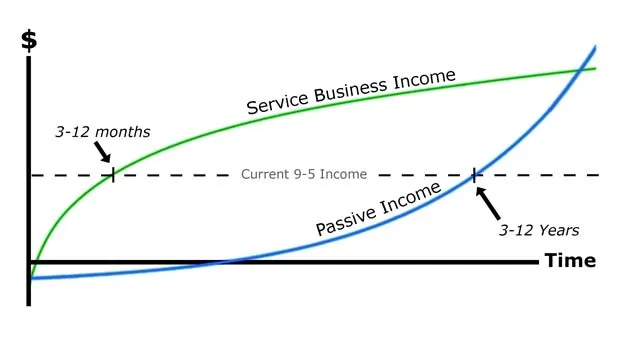
There was a time when the highlight of my week was Friday at 5 p.m. Each morning, I’d wake up and immediately calculate how many days remained until the weekend—my only brief escape from a job I couldn’t stand.
This wasn’t just a minor case of workplace dissatisfaction. I felt deeply trapped. Every Sunday brought a wave of dread as I realized the next day meant going back to the same soul-draining routine. But like many people, I wasn’t in a position to walk away—I needed the paycheck.
That was over a decade ago. Fast forward to today, my life looks drastically different. I now enjoy a career that offers flexibility, fulfillment, and financial independence. I no longer use an alarm clock, and I make time midweek for mountain biking or a round of golf. I work fewer hours, earn more money, and enjoy what I do. But that transition didn’t come easily or overnight.
When I first considered leaving my job, I fell into the same trap many aspiring entrepreneurs do—I believed in shortcuts. The internet is flooded with promises of overnight wealth, from flipping properties to launching the next viral app or selling courses online. These so-called “secrets” are often just smoke and mirrors, designed to make others rich while you chase illusions.
The truth is, if building wealth were that easy, everyone would be doing it.
One of the most important lessons I learned early on was to steer clear of “winner-take-all” markets. These are industries where a tiny fraction of people reap nearly all the rewards, while the vast majority struggle to break even. Think about bestselling authors, YouTube stars, or tech giants like Amazon—only a small handful become wildly successful, and most others are left scrambling for scraps.
It’s not just about skill or hard work in these cases—luck and timing often play outsized roles. That’s why starting a business based on the latest trend or idea can be a risky gamble. While a few outliers make it big, the rest pour time and money into ventures that never take off.
Even in the realm of “passive income,” which sounds appealing on the surface, the path is rarely passive or quick. Real estate, online content, affiliate marketing—these methods can work, but they often require years of consistent effort and a willingness to fail and learn along the way. That’s time most people simply don’t have if they’re working a full-time job.

So, what’s a realistic way to escape your 9-5 within months instead of years?
Here’s the answer: start a service-based business. Offer a skill or task people already pay for, and do it better than the competition. Whether it's photography, web design, lawn care, or dog waste removal—yes, seriously—it doesn’t matter as long as there’s demand.
When I left my job, I launched a simple handyman business. I wasn’t inventing anything new, and I certainly wasn’t the only one offering that service. But I provided reliable work, treated customers well, and showed up consistently. That was enough to stand out.
Within a few weeks, I landed jobs that paid hundreds. Within months, I was earning over $5,000 a month. Compare that to my online business, which took over three years to hit the same milestone. Service businesses bring in cash quickly, don’t require much upfront investment, and allow you to develop real-world entrepreneurial skills.
Even if you don’t have a particular skill today, you can learn one fast. Watch tutorials, practice, and start offering your services to friends or family. You don’t need to be the best—just reliable and decent.
And the beauty of it? You’re in control. You can work part-time or scale it into something larger. You can raise your rates, work fewer hours, and gradually create time and space to pursue your bigger goals—whether that’s launching a new venture or simply spending more time doing what you love.
This path isn’t glamorous. It doesn’t promise instant riches or luxury lifestyles. But it works. And if your goal is to quit your job without risking everything or waiting five years for a business to maybe take off, this is the way to do it.
Soon enough, you’ll be facing a new kind of problem: figuring out how to politely let your boss know you won’t be coming back.